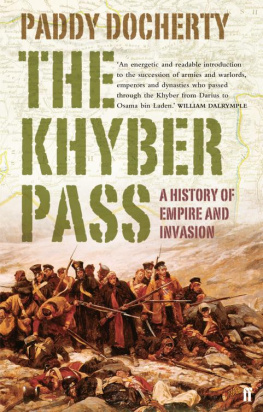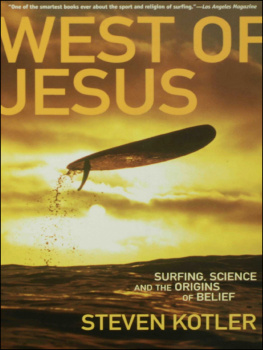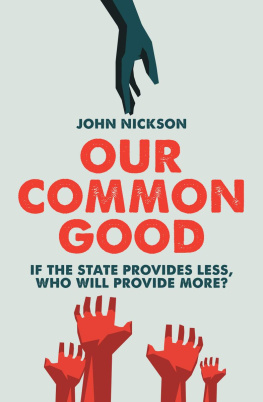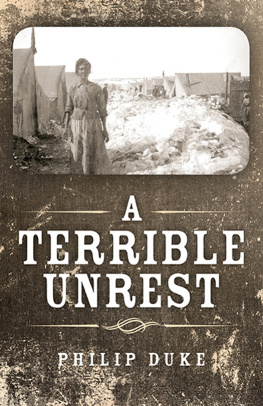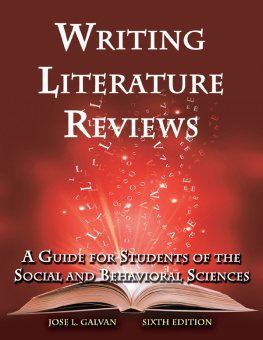
For George Donaldson, who knows many things, and especially the meaning of friendship
ALSO PUBLISHED BY BLOOMSBURY:
For the University, Thomas Docherty
Literary Criticism in the 21st Century, Vincent B. Leitch
Literature After Globalization, Philip Leonard

Contents
This book has had a long gestation, and was growing and developing through my writings over some years without my properly noticing that it was a discrete and large-scale argument, worthy of a full monograph study. I owe the realization to friends and colleagues with whom I have discussed the contents, in various ways, over those years, and also to the many institutions that have kindly hosted me when I have presented work in progress.
I would like in particular to thank my hosts and audiences in the following university institutions: Alberta, Brighton, Cardiff, Lausanne, Leeds, Manchester, Oxford, Portsmouth, St Gallen, Trinity College Dublin, Queens Belfast, Wolverhampton, York. Many colleagues have commented helpfully on my work in the field or have supported and encouraged me in various ways. I would like to thank: Emmanuel Alloa, Sourit Bhattacharya, Bob Brecher, Birgit Breidenbach, Aidan Byrne, Norah Campbell, James Christie, Ben Davies, Dominic Dean, Cormac Deane, George Donaldson, Michael Gardiner, Ranjan Ghosh, Andrew Gibson, Lyn Innes, Daniel Katz, Katja Laug, Neil Lazarus, Alice Leonard, Angus Love, Leo McCann, Graeme Macdonald, Stuart Macdonald, Paulo de Medeiros, J. Hillis Miller, Pablo Mukherjee, Claudio Murgia, Michael Neu, Carol Rutter, Carolyn Sale, Joe Shafer, Stephen Shapiro, Barry Shiels, Christian Smith, Nicholas Taylor-Collins, Peter Taylor-Gooby, Dieter Thom, Claire Westall, Julian Wolfreys. For more personal support, I thank Martin Read-Jones and Maureen McCreadie. I would be nowhere without Bridie May Sullivan and Hamish Docherty. I am enormously grateful to David Avital in Bloomsbury for his support for me and for this project, and also to the anonymous readers who reviewed the text and made excellent suggestions for improvement. The errors and infelicities that remain are mine.
On 15 October 2013, the UK Coalition government privatized the Royal Mail. The erstwhile public service that had delivered letters in one form or another for centuries at least since the Postage Act of 9 June 1657, during the Interregnum became the private property of shareholders. The Coalitions sale of this public asset was a political action that, in some ways, stands as emblematic for the work of my entire argument in the present book. It was, in short, a clear exercise in capitalizing on letters.
There is something of fundamental significance in this. That significance affects us all, and not just those of us who are actively engaged in reading and writing texts that we now call literary texts. Literature that specific form of writing whose significance is determined by its cultural institutionalization, especially in our educational systems has become a valued commodity in our time. Likewise, literacy is deemed to be a desirable intellectual capability, and a nations rates of childhood and adult literacy in the population are often used as an index of national well-being, as well as of cultural and economic wealth.
Many people are engaged in the literary aspects of the culture industries, buying and selling books, journals, newspapers; and many are keen to profit from literature in the commercial market place. Equally, the same institutions that work to produce specific cultural and political values and norms through their endorsement of literature and of literacy can also become complicit in worsening the condition of those who stand excluded from the values that the institutions of literature endorse. The recent history of literary studies over the last half-century is testimony to our recognition of the fact that literature as an institutionalized scheme of values conspired, knowingly or not, in the continued oppression of so-called minorities. As a consequence, we have had to work to redress the wrongs that this specific inflection of institutionalized Literature (Eng Lit) has done to women, people of oppressed races, those with sexualities that have differed from a supposed norm of heterosexuality, those from nations and cultures that have stepped out from colonial and imperial subjection and so on.
The cultures of letters have had many kinds of interplay with various movements of capital in this. As those examples show, this is not just a question of capital in Marxist terms, nor is it related to any steady or stable conception of literature. In this book, I will be exploring how capital has been composed, constructed and construed historically. That will involve a broad trajectory in which we can consider capital in relation to the ownership of land, first of all; and here, a poetry that is itself concerned with patronage and with the dependency of writing on a near-feudal relationship with landowners is important. Next, in the emergence of modern capitalism, this relation shifts and we start to understand capital in terms of commercial transactions and labour exploitation; and, with this, there emerges an idea of some forms of writing as demarcated by the same kinds of value that we find in paper money. We see the gradual shifting of an understanding of capital as it moves, first, into finance, and then into what we now recognize as cultural capital.
Such cultural capital exists and is itself produced only thanks to the various ways in which some forms of writing are institutionalized as being of significant general and public value; and it is in our institutions of education that we find this happening most insistently. It follows that we must seek to understand not just the shift from commercial capital to cultural capital, but also the conditions in which cultural capital is itself formed, through our institutions. Some of those institutions are central to the polity; and this will take us into a consideration of what we can call institutional capital. At this stage, the relation of literature to the State becomes important; and, when the State takes an interest in how its institutions operate to cultivate social and political norms, then we have a potential politicization of letters as such.
That will lead, in due course, to the ways in which a society manages its capital in all forms: land ownership, commercialization, commodification, institutional power as vested in cultural capital or learning, and State power. The final turn in this trajectory is one whereby cultural capital itself moves into some fundamental evaluations through literature and its institutions of the managing of human capital: the business of capitalizing on private individuals. The fundamental issues that dominated the moment at the start of our history that quasi-feudal structure of dependency of literature on land returns here in modified form. What we might call capitalized letters will yield us a form of human capital that witnesses the consolidation of power in land, this time shaped by globalization and servitude rather than by a medieval feudal localism. This changes everything; and capitalized letters now need to attend to the ways in which our institutionalized forms of writing and reading that is, our forms of criticism will shape our relation not just to the local land, but to broader ecological survival.


